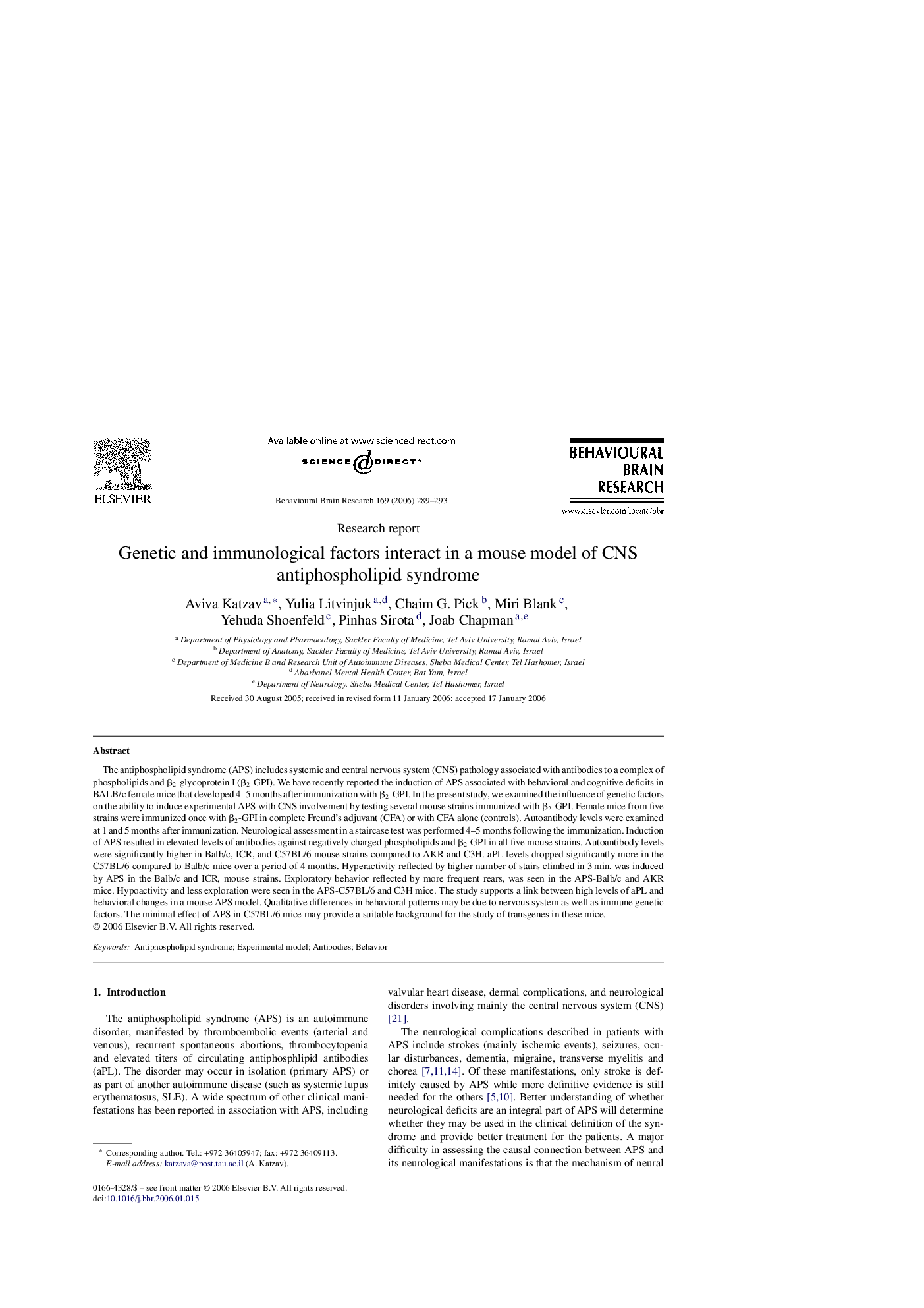| Article ID | Journal | Published Year | Pages | File Type |
|---|---|---|---|---|
| 4316200 | Behavioural Brain Research | 2006 | 5 Pages |
The antiphospholipid syndrome (APS) includes systemic and central nervous system (CNS) pathology associated with antibodies to a complex of phospholipids and β2-glycoprotein I (β2-GPI). We have recently reported the induction of APS associated with behavioral and cognitive deficits in BALB/c female mice that developed 4–5 months after immunization with β2-GPI. In the present study, we examined the influence of genetic factors on the ability to induce experimental APS with CNS involvement by testing several mouse strains immunized with β2-GPI. Female mice from five strains were immunized once with β2-GPI in complete Freund's adjuvant (CFA) or with CFA alone (controls). Autoantibody levels were examined at 1 and 5 months after immunization. Neurological assessment in a staircase test was performed 4–5 months following the immunization. Induction of APS resulted in elevated levels of antibodies against negatively charged phospholipids and β2-GPI in all five mouse strains. Autoantibody levels were significantly higher in Balb/c, ICR, and C57BL/6 mouse strains compared to AKR and C3H. aPL levels dropped significantly more in the C57BL/6 compared to Balb/c mice over a period of 4 months. Hyperactivity reflected by higher number of stairs climbed in 3 min, was induced by APS in the Balb/c and ICR, mouse strains. Exploratory behavior reflected by more frequent rears, was seen in the APS-Balb/c and AKR mice. Hypoactivity and less exploration were seen in the APS-C57BL/6 and C3H mice. The study supports a link between high levels of aPL and behavioral changes in a mouse APS model. Qualitative differences in behavioral patterns may be due to nervous system as well as immune genetic factors. The minimal effect of APS in C57BL/6 mice may provide a suitable background for the study of transgenes in these mice.
